These materials include correspondence regarding an inquiry by Albert Spring as to why his daughter, Elsina Spring, was denied admittance at the Carlisle Indian School. Spring was informed that his daughter was denied enrollment due to her age and access to local public schools in New York.
Enrollment Policies
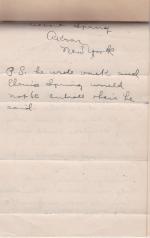
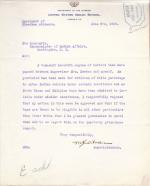
Acting Supervisor Elsie E. Newton from Muskogee, Oklahoma asks Carlisle Indian School Superintendent Moses Friedman if "two Cherokee boys" from the "unrestricted class of Indians" could attend his school and how much it would cost. Friedman sends two applications to Newton and informs her that board and tuition costs $167 and that the potential…
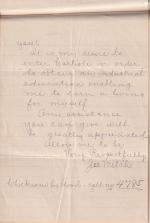
These materials include correspondence regarding a request by Joe Welch to be admitted to the Carlisle Indian School to obtain an education in industrial arts. Welch was informed that as a member of the Chickasaw Nation he could only attend Carlisle by paying tuition but that he could attend Haskell Institute without paying tuition.
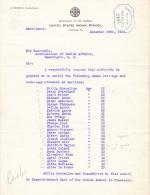
These materials include correspondence regarding a request from Moses Friedman to enroll 26 students over the age of 21 or under the age 14. The request was granted by the Assistant Commissioner of Indian Affairs.
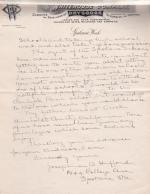
These materials include correspondence regarding a request by Josephine Hufford to enter a non-reservation Indian School in order to continue her education.
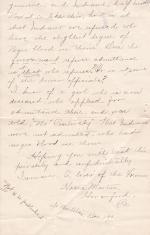
These materials include correspondence regarding a question from Hattie Martin, of Haverford, Pennsylvania, on whether Indian students with black heritage were excluded from enrolling in the Carlisle Indian School. School and federal officials debated on how to respond. Carlisle Superintendent Moses Friedman argued that those students often…
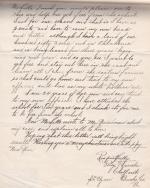
These materials include correspondence regarding a complaint made by Percy Parroka that he was made to stay under the school rules while working on a farm in Bucks County, Pennsylvania following the expiration of his term of enrollment.
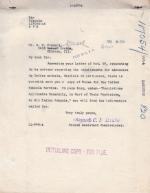
A. E. Stewart requests to know what the requirements are for admission to the Carlisle Indian School. Second Assistant Commissioner of Indian Affairs C. F. Hauke sends Stewart a copy of Rules for the Indian Schools Service (not attached here), and cites the page with the relevant information.
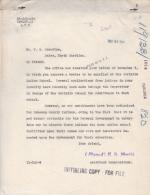
Cherokee Indian from Eastern North Carolina W. H. Oxendine requests to know if a recommendation from the State Superintendent of Education would be enough for admission to the Carlisle Indian School, where he wants to go to receive industrial training. Assistant Commissioner of Indian Affairs E. B. Meritt informs Oxendine that that the school…
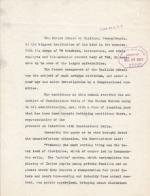
These materials include a memorandum about reforms made to Carlisle Indian School policies by Supervisor Oscar Hiram Lipps in response to a 1914 Congressional investigation. The outlined reforms included curtailing the outing program, changing the courses of study, standardizing disciplinary measures, increasing arrests of local bootleggers,…
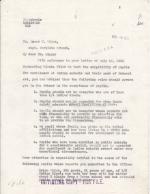
These materials include correspondence and federal financial aid documents regarding a list of students who were not eligible for enrollment at Carlisle under new enrollment guidelines regarding the availability of schools at home agencies. Upon further investigation, certain students were allowed to remain at Carlisle.
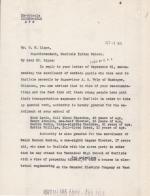
These materials include correspondence regarding two special enrollment courses. The first is for the enrollment of four pupils over the age of 21 years, the maximum allowed at Carlisle. The second is for Ralph Harmon Sexton to attend a technical high school in the borough of Carlisle, so he could pursue a course in Electrical Engineering from…
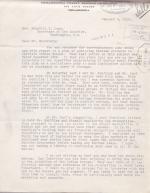
These materials include correspondence regarding a plan of Stanley R. Yarnell, of the Germantown Friends School in Philadelphia, Pennsylvania, to admit Mexican students to the Carlisle Indian School.
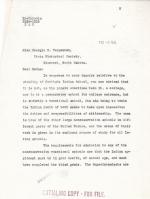
State Historical Society of North Dakota Librarian and Acting Curator Georgia B. Carpenter asks the Commissioner of Indian Affairs for information regarding the Carlisle Indian School. Assistant Commissioner E. B. Meritt informs Carpenter that Carlisle is a vocational school and that its intentions to train Indian young adults "the duties and…
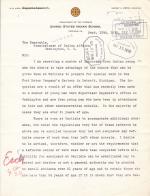
This material includes information regarding the enrollment of students at Carlisle for industrial programs at the Ford Motor Company Factory in Michigan and other industrial work places. Carlisle Superintendent Oscar Hiram Lipps sought clarification on who should be permitted to enroll as many applicants did not meet the normal regulations for…
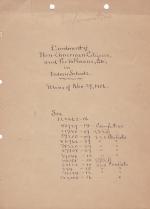
In response to a question about whether students from Mexico could be admitted to the Carlisle Indian School, this memorandum is a compilation of information regarding the enrollment of individuals who are not American citizens, including individuals from Alaska, Puerto Rico (Porto Rico), and the Philippines. The memo discusses enrollment…
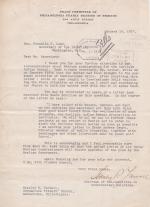
These materials include correspondence regarding the education of Mexican students at the Carlisle Indian School. Commissioner Sells' responds that Carlisle is not academically advanced but meant to train students in industrial arts. Further authority from Congress would have to made to have students from Mexico attend Carlisle. Also includes…
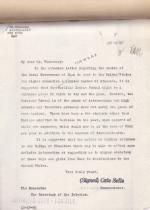
These materials include correspondence regarding a request from the Naval Government of Guam to send students to the United States for higher education. The Carlisle Indian School was suggested as the institution for these students.
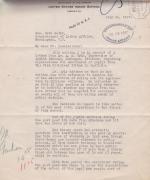
Carlisle Indian School Superintendent John Francis Jr. writes to Commissioner of Indian Affairs Cato Sells regarding the Declaration of Policy, which he believes may prohibit any students from Oklahoma - particularly members of the "Five Civilized Tribes" - or New York from enrolling at Carlisle because they have access to public schools.…
